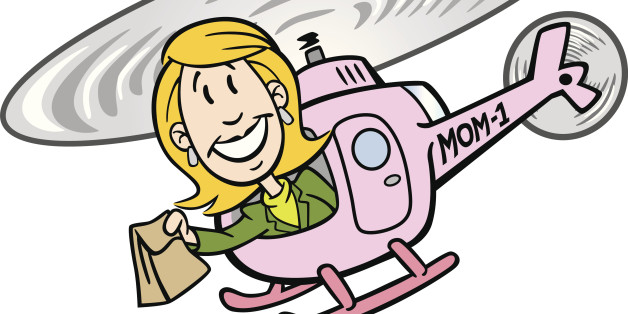

Helicopter parenting is on occasion associated with societal or cultural norms which furnish or standardize themes related to vicariousness.

The second was the public perception of increased child endangerment, a perception which free-range parenting advocate Lenore Skenazy described as "rooted in paranoia".

The first was the comparatively booming economy of the 1990s, with low unemployment and higher disposable income. Helicopter parents attempt to "ensure their children are on a path to success by paving it for them." The rise of helicopter parenting coincided with two social shifts. Howe contrasts this to the sustained participation of Boomer parents of Millennials in the educational setting, describing these parents as "sometimes helpful, sometimes annoying, yet always hovering over their children and making noise." Howe describes baby boomers as incredibly close to their children, saying that in his opinion, this is a good thing. He describes the latter as "stealth-fighter parents" due to a tendency of Gen X parents to let minor issues go, while striking without warning and vigorously in the event of serious issues. Howe describes the helicopter parenting of baby-boomers as a distinct parenting style from Generation X parents. Generational demographer Neil Howe describes helicopter parenting as the parenting style of baby boomer parents of millennial children. As this cohort entered the workforce, Human Resource officials reported helicopter parents showing up in the workplace or phoning managers to advocate on their adult child's behalf or to negotiate salaries for their adult children. The Chronicle of Higher Education reported that helicopter parents continued advocating for their adult children at the graduate school level as well, such as advocating for their adult child's admission to law school or business school. Summer camp officials have also reported similar behavior from these parents. Their baby-boomer parents earned notoriety for practices such as calling their children each morning to wake them up for class and complaining to their professors about grades the children had received. It subsequently gained wide currency when American academic administrators began using it in the early 2000s as the oldest millennials began reaching college age. The term "helicopter parent" has been in use since the late 1980s. Haim Ginott, which mentions a teen who complains: "Mother hovers over me like a helicopter." The metaphor appeared as early as 1969 in the bestselling book Between Parent & Teenager by Dr.


 0 kommentar(er)
0 kommentar(er)
